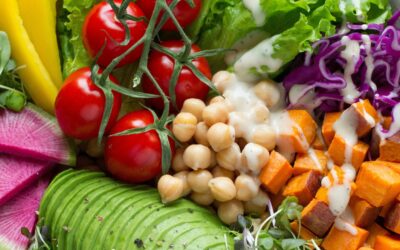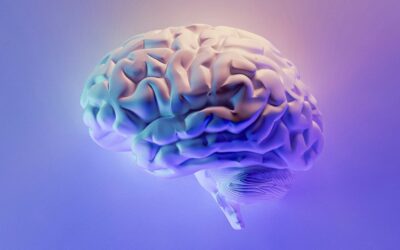For those of you who do not know me and have not read my bio, my name is Matt Beyer and I’m an 8th trimester DC student just starting out at the NUHS Whole Health Clinic. Getting this far into this program here at National, I’ve certainly needed to learn some self-care and stress management techniques. As my first topic as a NUHS blogger, I want to address this incredibly pertinent topic. While this blog post is primarily directed toward students earlier in the program who may still need to gain their footing, these strategies can really be applied by anybody in any stage of life.
The Low Hanging Fruit: Sleep & Exercise
As students of natural medicine, we know the pivotal role that these lifestyle factors play in our overall health. That’s why it’s startling how quick these habits can fall by the wayside during those dreaded midterms and finals, when we need them the most! So, this is your reminder to prioritize sleep and exercise throughout this program. It is certainly possible to fit these into your 25+ credit hour schedule if you set your mind to it. My advice is to have hard set times in which you work out or sleep daily and try to hardly veer from these times. Being consistent in this way can also help set your circadian rhythm, which plays a huge role in your stress response and how much this stress response is helping or hurting you.

Make Stress Your Friend, Not Your Enemy
We also need to change the relationship we have with stress. In a class in undergrad, we watched a Ted Talk where a health psychologist talks about the beneficial effect of reframing the way we look at stress. This psychologist, Kelly McGongial, shares a study showing that those who believe stress is harmful have a higher risk of all-cause mortality, while those who view stress as a natural response do not face this same risk. McGonigal encourages individuals to seek meaning in life and connect with others under stress, as well. This video had a profound impact on how I’ve viewed stress, and I hope it can help reframe the way you respond to these emotions as well. Learn to appreciate stress as the intrinsic driver that will power you through this tough program!
Mindfulness Meditation
While I can (and likely will) write a whole blog post on this activity alone, mindfulness meditation is one of the best habits you can get into to manage stress and enhance overall wellness. Meditation may seem “woo-woo” to some, but it has actually shown to decrease stress and inflammatory markers and to have positive impacts on the brain. This simple, wonderful activity causes increased activity in the part of the brain associated with focus and impulse control (the dorsolateral prefrontal cortex), while dampening input in a part of our brain associated with mind-wandering. This means meditation can kill two birds with one stone – helping you feel less stressed out while increasing your focus! I know the act of meditation can seem daunting, but all you really need to do is start with one minute per day, trying your best to only focus on your breath (“I’m now breathing in, I’m now breathing out”). Thoughts are going to flow into your head to try and knock you off course, this is normal. Instead of getting frustrated, acknowledge those thoughts, wave hello to them, let them pass through, and focus on the next breath. Initially, I believe this bombardment of thoughts to be a good thing.
For me, meditation opened my eyes to how often we are confronted with a barrage of thoughts that can throw us of course of the present moment. The goal isn’t to silence these thoughts, but rather to avoid engagement with them. That way we are not dominated by every negative thought that comes in our head, allowing it to linger and fester into unpleasurable emotions. Eventually, as you train your brain and grow plasticity in your big, bad dorsal lateral prefrontal cortex, you will be able to focus only on your breath for several minutes a day. The goal is to be able to apply this level of focus and calm throughout your day. In this program it is crucial to take things week by week, day by day, and even most ideally, moment to moment.
For further information, check out these references:
Thomas JM, Kern PA, Bush HM, et al. Circadian rhythm phase shifts caused by timed exercise vary with chronotype. JCI Insight. 2020;5(3):e134270. Published 2020 Feb 13. doi:10.1172/jci.insight.134270
Koch CE, Leinweber B, Drengberg BC, Blaum C, Oster H. Interaction between circadian rhythms and stress. Neurobiol Stress. 2016;6:57-67. Published 2016 Sep 8. doi:10.1016/j.ynstr.2016.09.001
McGonigal K. How to make stress your friend. Ted.com. Published June 2013. https://www.ted.com/talks/kelly_mcgonigal_how_to_make_stress_your_friend?language=en
Pascoe MC, Thompson DR, Jenkins ZM, Ski CF. Mindfulness mediates the physiological markers of stress: Systematic review and meta-analysis. J Psychiatr Res. 2017;95:156-178. doi:10.1016/j.jpsychires.2017.08.004
Tomasino B, Fabbro F. Increases in the right dorsolateral prefrontal cortex and decreases the rostral prefrontal cortex activation after-8 weeks of focused attention based mindfulness meditation. Brain Cogn. 2016;102:46-54. doi:10.1016/j.bandc.2015.12.004




0 Comments